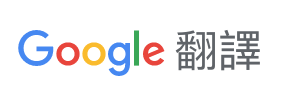
Education publisher Pearson to phase out print textbooks

Pearson said students would only be able to rent physical textbooks from now on, and they would be updated much less frequently.
The British firm hopes the move will make more students buy its e-textbooks which are updated continually.
“We are now over the digital tipping point,” boss John Fallon told the BBC.
“Over half our annual revenues come from digital sales, so we’ve decided a little bit like in other industries like newspapers or music or in broadcast that it is time to flick the switch in how we primarily make and create our products.”
The firm currently makes 20% of its revenues from US courseware, but has been struggling as students increasingly opt to rent second-hand print textbooks to save money.
To counter this Mr Fallon said Pearson would stop revising print books every three years, a model that has dominated the industry for 40 years.
It means that next year the firm will only update 100 of its 1,500 titles in print – down from 500 in 2019.
“We learn by engaging and sharing with others, and a digital environment enables you to do that in a much more effective way.”
Digital textbooks can be updated responsively and also incorporate videos and assessments that provide students with feedback.
Pearson has been going through a painful turnaround after years of falling sales and profits, but appeared to have turned a corner in 2018.
Its underlying sales rose 2% in the first quarter of 2019, although the firm admitted revenue in its US business could fall by as much as 5% this year.
1. dominated (v)
to have control over a place or person
2. flick (v)
to move or hit something with a short sudden movement
3. courseware (n)
software that is designed to teach people something
4. opt (v)
to make a choice, especially of one thing or possibility instead of others
5. underlying (adj.)
real but not immediately obvious
- What is the name of the publisher?
- What did the company’s CEO say the future was in?
- What advantage of digital books did Pearson describe?
- For how long has the textbook business model dominated the market?
- Would you prefer to buy or subscribe to a textbook?
- What are the disadvantages of e-books?
- What images are in your mind when you hear the word ‘education’?
- What are the disadvantages of printed textbooks?
- Are printed textbooks the best?

 Pre-Advanced
Pre-Advanced 
